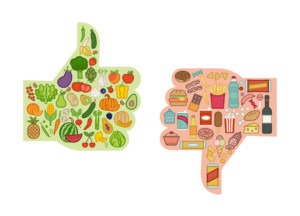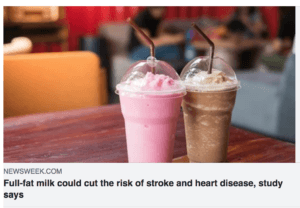
Remember when coffee and the caffeine in it was just plain bad? Consistent research now suggests that moderate levels of coffee consumption, and yes caffeine, for many, is not detrimental to health, and may in fact, have a positive impact.
Remember when cholesterol in eggs was vilified in media, largely to a poor understanding of cardiac risk factors and the gross over-simplification of biochemistry? We now understand that the nutritional benefits of egg consumption are significant.
When these category-based ‘truths’ and assumptions are delivered and institutionalized, it can take decades for them to recover, in spite of, or perhaps because of the agendas which support these category critiques. Be it an organization such as the American Heart Association (AHA) and its powerful lobby backers, or a grassroots organization with the best of intentions to protect consumer safety or exploitation, there are frequently unintended and secondary consequences. These can include pendulum behaviors (consumers remove an item from their diet only to realize later that they’ve not ‘solved the problem’ or have tipped an otherwise fragile balance). Or exploding one ecosystem without giving adequate thought to the consequences (environmental or otherwise) to the development of an alternative ecosystem.
In today’s environment, we confound these activities further, since we live in an Internet/social system where everyone theoretically is a publisher, and the overall distrust of traditional news sources has never been higher.
It was against this backdrop that I considered a piece of research published several weeks ago, that read, “New research could banish guilty feeling for consuming whole dairy products”. For years now, we’ve been taught that full fat products needed to be replaced and lightened, and in fact, perhaps dairy products themselves ought to be replaced with ‘alternatives’. What if low-fat and zero-fat were actually not reducing cardiovascular risks and instead were altering among, other things, our microbiome, and increasing risks of avoidable diseases? And perhaps most interestingly, how does one effectively challenge established dietary guidelines, which if one is generous, are slow to reflect emerging science, and less generously, operate on a continuum anchored in the ‘60s and ‘70s.
Recognizing that any new piece of science does not suddenly invalidate all that came before, but adds only a data point, I found this new research on dairy fats intriguing. The research, published by The University of Texas Health Science Center at Houston in the American Journal of Clinical Nutrition, continues to challenge published dietary guidelines in relation to the consumption of dairy fats and risk of cardiovascular disease. In the study, researchers examined, in 3,000 adults age 65 years and older, how several biomarkers of fatty acid in dairy fat related to heart disease and all-cause mortality. The researchers measured plasma levels of three fatty acids found in dairy products at the beginning in 1992 and again at six and 13 years later, determining that none of these particular fatty acid types were significantly associated with total mortality, and “in fact one type (heptadecanoic fatty acid) was linked to lower cardiovascular disease deaths. “People with higher fatty acid levels, suggesting higher consumption of whole-fat dairy products, had a 42 percent lower risk of dying from stroke.”
 Interesting, while this article was cited in mainstream media on Newsweek and Medical News Today, and appears to be supported by other evidence, trade industry, and by that I mean the nutra/health food folks, have by and large not commented. I know there are lots of stories out there so the omission is understandable, but I wonder, are we sometimes ourselves too caught up in the next alternative dairy product or pure science story that we forget the narrative and science right in front of us?
Interesting, while this article was cited in mainstream media on Newsweek and Medical News Today, and appears to be supported by other evidence, trade industry, and by that I mean the nutra/health food folks, have by and large not commented. I know there are lots of stories out there so the omission is understandable, but I wonder, are we sometimes ourselves too caught up in the next alternative dairy product or pure science story that we forget the narrative and science right in front of us?
And as we examine this particular instance, what does it mean regarding the continuum of saturated fats and argued association with cardiovascular risk. Maybe there’s yet a few more chapters yet to come….
~Len


